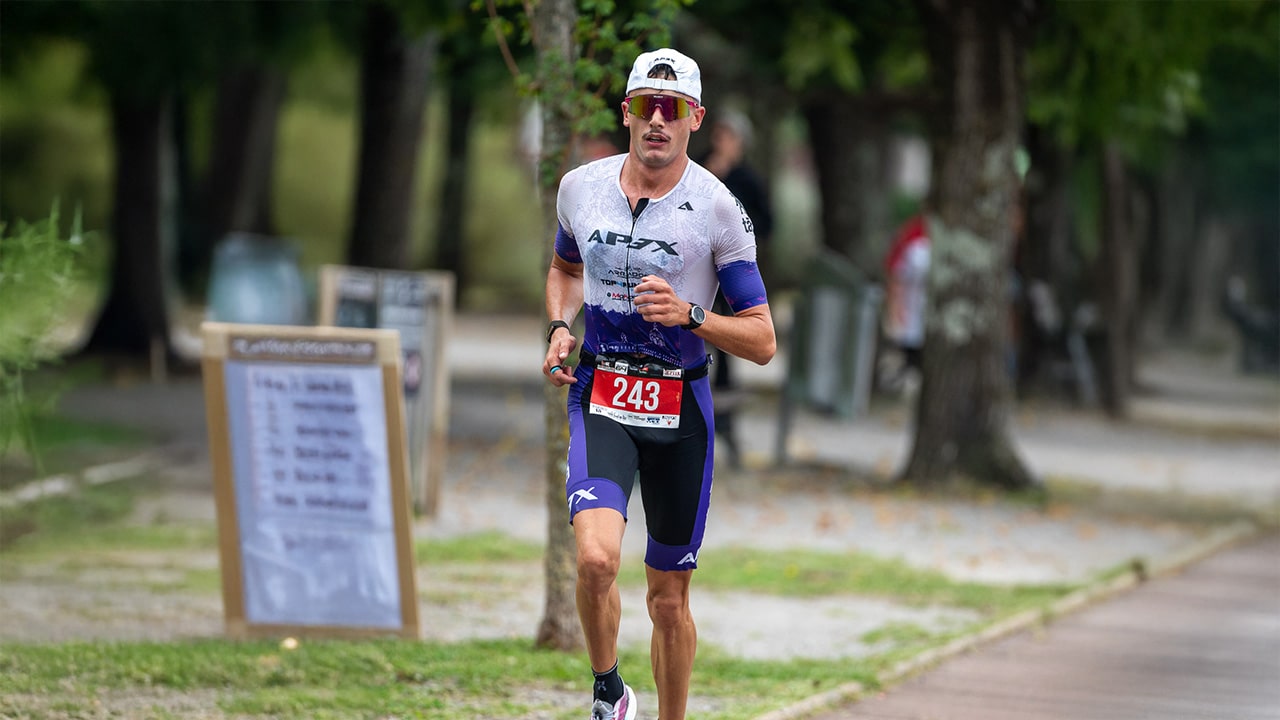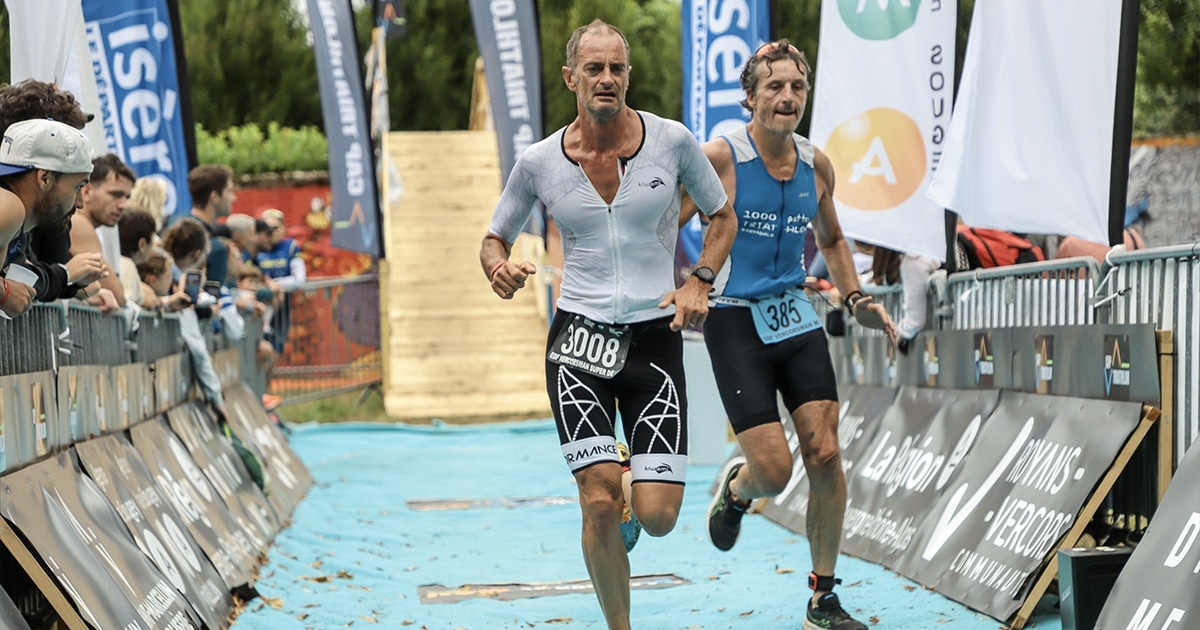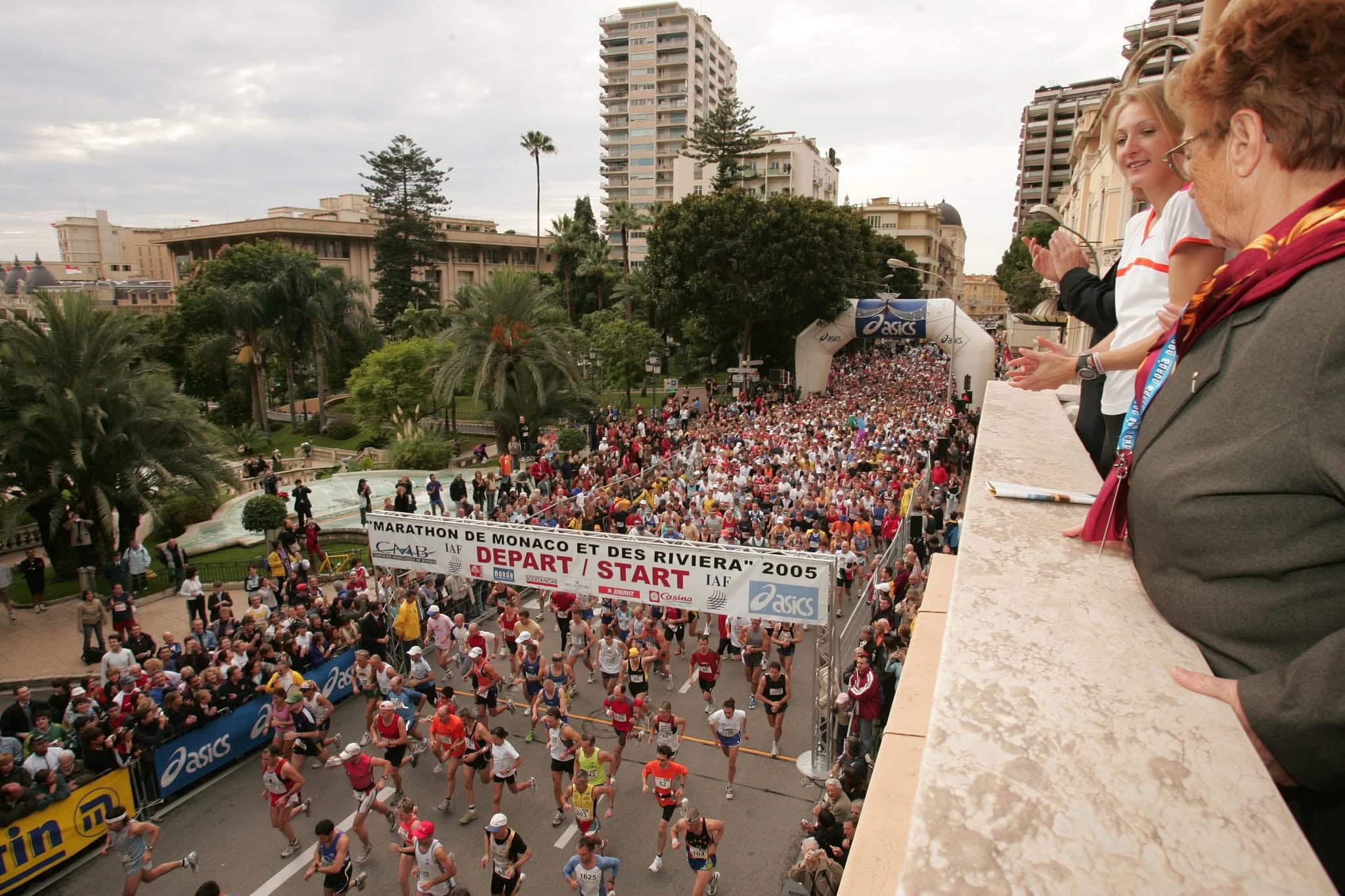Thibault Escaich, the Young Triathlete from Toulouse Ready to Tackle Ironman Cascais
At just 23, Thibault Escaich is gearing up for an extraordinary first Ironman experience. The race kicks off this Saturday, October 18, 2025, in Cascais, Portugal — and the goal couldn’t be clearer: qualify for the 2026 Ironman World Championships in Kona, Hawaii. From his improvised beginnings during lockdown to his long Sunday runs, here’s the story of a determined young triathlete who blends passion, hard work, and resilience.
February 2020, Toulouse. While studying for a degree in Sports Science, Thibault found himself stuck at home during the COVID lockdown. Faced with a choice between video games and exercise, he didn’t hesitate. “I’ve always been sporty — tennis, swimming, rugby, running… So why not give triathlon a shot?” That’s how he discovered a demanding yet fascinating sport that combines three disciplines into one.
With friends, he launched an Instagram account — @triathlonthibault — which quickly attracted brands interested in his athletic and creative profile. What started as a hobby became a lifestyle. After earning his degree, he pursued a master’s in sports event management at Moss Business School.
Today, the Toulousain triathlete lives off his passion — juggling social media partnerships and intense training. On Saturday, October 18, his next chapter begins in Cascais, with one clear goal: earn his ticket to Kona.
| Running: The Backbone of His Training
For outsiders, triathlon means swimming, cycling, and running — but for Thibault, running remains the cornerstone. “I feel strong on the bike, then on the run. Swimming comes last,” he admits. His weekly schedule is fine-tuned: easy jog on Monday, tempo session Wednesday, long run on Sunday — often 20 to 25 km on flat terrain.
To improve, Thibault balances mileage with purpose. His carbon-plated shoes are reserved for key workouts, while everyday sessions are done in regular trainers to save performance for race day. Together with his coach of four years, Maxime Astorg, he focuses on control over intensity. “The idea is to stay in control, run easy most of the time, and be ready when it counts.” Those long Sunday runs teach him to manage fatigue — a crucial skill for surviving the 26.2-mile marathon that caps an Ironman.
| Injuries, Setbacks… and Resilience
Thibault’s path hasn’t been smooth. He’s had his share of crashes — car collisions, a broken collarbone, even a fractured jaw. Returning to running proved hardest due to the impact on the ground. “Swimming helped me ease back into training. Then I gradually rebuilt mileage, only adding speed once the base was solid.”
Ironically, those setbacks became mental fuel. “Psychologically, they made me stronger. I learned to take a step back and rebuild from the ground up before pushing harder.”
| Racing Résumé
Before taking on the Ironman, Thibault has already shown promise on the road:
Marathon: 2:43:35 — Berlin Marathon, 2023
Half Marathon: 1:10:09 — Barcelona Half Marathon, 2025
- 10K: 32:40 — Bordeaux Quays 10K, 2024
Though he’s only run one marathon so far, his strong half marathon and 10K background — built on volume and threshold training — gives him a solid foundation for triathlon’s toughest challenge.
| Building for Ironman: Strategy Meets Endurance
For Ironman Cascais, Thibault is betting on smart pacing: aiming for a steady 4:00/km marathon pace, fueling with 100 grams of carbs per hour via energy gels every 5–6 km. “The plan is to stay consistent for 40 km and only push in the final stretch.”
His weekly load reaches up to 25 hours of training, often with two sessions per day: swim-bike combos, long rides, tempo runs, and brick sessions to simulate race conditions. Every detail is crafted to prepare for the mental and physical toll of the Ironman.
« Ironman takes a lot out of you, but that’s what makes it beautiful. Every race teaches you something new — every stride is a lesson. »
Thibault Escaich
| The Mind Game
Beyond fitness and technique, Thibault relies heavily on mental strength. Inspired by Vincent Luis, the French triathlon star and four-time world relay champion, he even shares a few training sessions with him. Long runs, pre-fatigue workouts, and bike-run transitions help Thibault sharpen focus under fatigue. “Even when I’m tired or injured, I keep swimming and cycling — it’s all connected.”
His goal is clear: qualify for Kona. In his age group (18–24), he’ll need to finish among the top two. “If others are stronger, good for them. But I’m going there to win.”
| What’s Next After Cascais?
First comes the Ironman debut — and hopefully, a ticket to Hawaii. After that, he’s eyeing a faster time at the Barcelona Half Marathon in February, and maybe a few Half Ironman events to stay sharp. His calendar is ambitious but flexible.
“Ironman takes a lot out of you, but that’s what makes it beautiful. Every race teaches you something new — every stride is a lesson.”
➜ Check Out the Upcoming Marathon Calendar

Dorian VUILLET
Journalist



